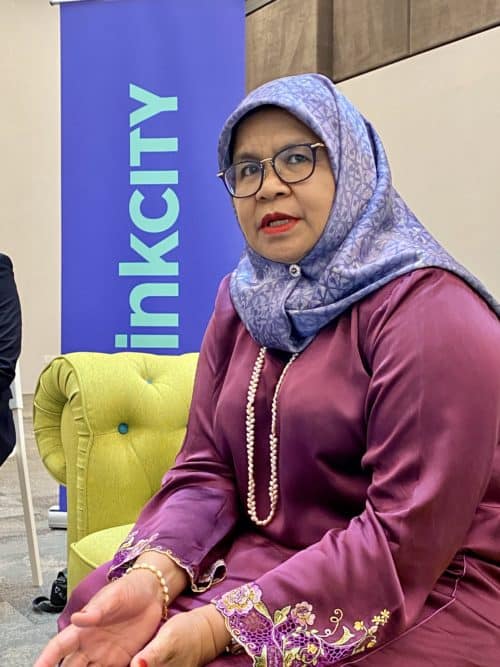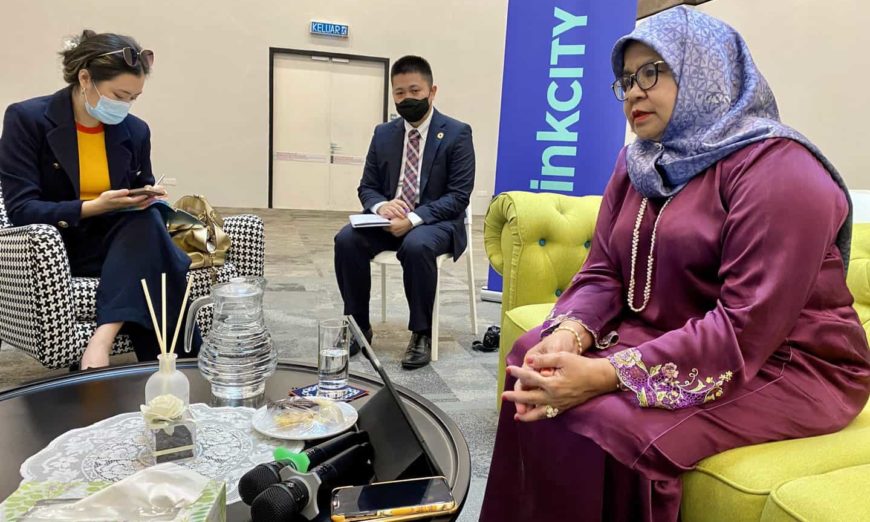THE world needs bold leaders who are brave enough to bring transformation, United Nations Human Settlements Programme (UN-Habitat) executive director Datuk Seri Paduka Maimunah Mohd Sharif said.
Speaking to the media at Bangunan UOB in China Street Ghaut today, Maimunah said that while many leaders might have great plans and strategies, most leaders lack (the will) to implement them.
“Sometimes we (leaders) ‘overstudy’. It is easy to strategise or come up with a report. The challenge is how you translate (it into action).
“This does not happen only in Malaysia, but globally,” she said.
Speaking about her recent meetings, Maimunah said she was briefed by the PLANMalaysia director-general about matters concerning coastal erosion in Malaysia.
“I was informed that PLANMalaysia has produced a report with plans to address coastal erosion.
“I asked the director-general about his plans in putting them into action.
“I proposed several areas, such as Port Dickson, Batu Ferringhi, Sabah, Sarawak, Kelantan, and Terengganu, as places to be considered for implementing the plans.
“We should not be happy for launching a report. The challenge is to implement what is in the report, and how we ‘translate’ them into action.
“I toured the Penang island yesterday after not being back here for three years. I stopped at Batu Ferringhi and yes, the beach has been eroded due to the rising of sea levels,” she said.
It was reported by a news portal recently that the National Coastal Vulnerability Index (NCVI), introduced under the Second National Coastal Zone Physical Plan (RPP-2), revealed that 425km of Malaysia’s coastline is affected by coastal erosion.
The RRP-2 document contains strategic plans on land use, environmental conservation, and management along 3,800km of coastline in Peninsular Malaysia and the Federal Territory of Labuan.
Housing and Local Government Minister Datuk Seri Reezal Merican Naina Merican was quoted as saying that the RPP-2, produced by PLANMalaysia, also involved 45 local authorities that manage the coastline.
Separately, Maimunah said she has outlined three priorities for the years 2022 and 2023.
“We will focus on affordable housing, climate change and localising the Sustainable Development Goals (SDGs).
“We do not have much time left to achieve the 2030 Agenda for Sustainable Development. We have approximately 2,700 days before the year 2030 arrives.
“We take out the time which we used to sleep, and those are the time we have left to deliver the SDGs by 2030. We must act now,” she said.

Maimunah added that cities could play a role by formulating urban solutions to deal with climate change.
She also spoke about the ‘Nature-based Climate Adaptation Programme for the Urban Areas of Penang Island’, of which, a grant of US$10 million was approved on Feb 23 this year to enhance urban resilience and reduce human and ecosystem health vulnerability to climate change impacts by implementing nature-based solutions.
According to the Adaptation Fund website, the executing entities for the programme are the Penang City Council (MBPP), Think City, Ministry of Environment and Water, and Department of Irrigation and Drainage. Meanwhile, the implementing entity is UN-Habitat.
The website also mentioned that the duration of the programme is five years.
The Adaptation Fund was established under the Kyoto Protocol of the UN Framework Convention on Climate Change.
Maimunah said that UN-Habitat was also working with other cities and states in Malaysia on other programmes.
“We are working with Melaka on smart mobility, with Iskandar Malaysia on smart city, with Seremban on waste management, and with Shah Alam on digital safety, to name a few.
On Covid-19 challenges, Maimunah said the pandemic has impacted people globally.
“We found that poverty is still a problem. More people are becoming poor because of this pandemic.
“Globally, in 2020, there were about 143 million poor people. And the number has increased to 163 million people in 2021,” she said.
She also spoke about the global infrastructures which are needed by 2030.
“About 75% of these infrastructures have not been built as of today. It is time to formulate new business models which can include green infrastructures, promote zero carbon emission and green recovery,” Maimunah added.
Story and pix by Christopher Tan

